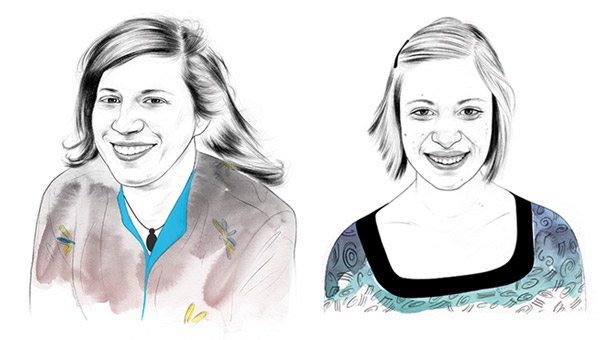Analyzing Health Awareness in Kenya
Katarina Krueger, SPU Senior
Geri Mason, Assistant Professor of Economics,
School of Business and Economics
 Geri Mason, Assistant Professor of Economics (left); Katarina Krueger: Global Development major (right)
Geri Mason, Assistant Professor of Economics (left); Katarina Krueger: Global Development major (right)![]() View more photos
View more photos
“Can a person who looks healthy still be infected with HIV?” “How many months did you breastfeed?”
In the summer of 2012, Katarina Krueger traveled to villages in western Kenya to ask these and other questions as part of a health knowledge survey. Visiting more than 1,200 households, the American and Kenyan survey team aimed to find out what families knew about health behaviors — and what behaviors they were actually practicing.
Krueger got connected with the survey group through her parents’ and grandparents’ missionary work in the area. When she returned to campus after her trip, she wanted to keep learning, so she asked Assistant Professor of Economics Geri Mason if she would oversee an independent study. Mason agreed, and encouraged Krueger to pursue her research interests.
“I want you to think about what you are most interested in,” Mason told her. Krueger chose to focus on maternal health, so they analyzed the data from those questions.
“We found mothers were practicing more than they knew, which I thought was interesting,” she says. For instance, more women were taking their babies in for check-ups than could articulate the reason for doing so.
Mason then helped Krueger prepare to present their research as a poster at the Consortium of Universities for Global Health conference in Washington, D.C., in March 2013. “It was not really for undergraduates — I was like a minnow in the deep sea,” Krueger says. “But that didn’t stop me from meeting as many people as I could.”
